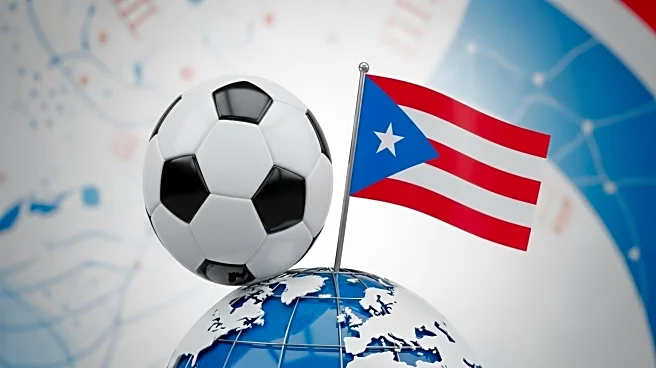What's Happening?
A friendly soccer match between Argentina and Puerto Rico, initially scheduled to take place in Chicago, has been moved to Chase Stadium in Fort Lauderdale, Florida. The relocation comes amid unrest in Chicago, where President Trump has deployed the National Guard to address protests against an immigration crackdown. The match, originally set for October 13 at Soldier Field, will now occur on October 14. The decision to move the game was confirmed by an Argentine Football Association executive, who cited the unrest as the reason for the change. This match is part of Argentina's preparations for the upcoming World Cup, which will be co-hosted by the U.S., Mexico, and Canada.
Why It's Important?
The relocation of the Argentina-Puerto Rico match highlights the impact of political and social unrest on international sporting events. The deployment of the National Guard in Chicago reflects the Trump administration's aggressive stance on immigration enforcement, which has led to significant protests and over 1,000 arrests in the area. This situation underscores the broader tensions surrounding immigration policy in the U.S., affecting not only local communities but also international engagements. The move to Florida ensures the match can proceed without disruption, maintaining Argentina's World Cup preparation schedule.
What's Next?
Argentina will continue its World Cup preparations with another friendly match against Venezuela at Hard Rock Stadium in Miami. The relocation of the match to Florida may prompt further discussions about the intersection of sports and political issues, particularly in cities experiencing unrest. Stakeholders, including sports organizations and local governments, may need to consider contingency plans for future events in politically sensitive areas.
Beyond the Headlines
The decision to relocate the match due to unrest in Chicago raises questions about the influence of political decisions on sports. It highlights the potential for sports events to be affected by broader societal issues, such as immigration policy and civil unrest. This situation may lead to increased scrutiny of how political climates can impact international sports scheduling and logistics.









